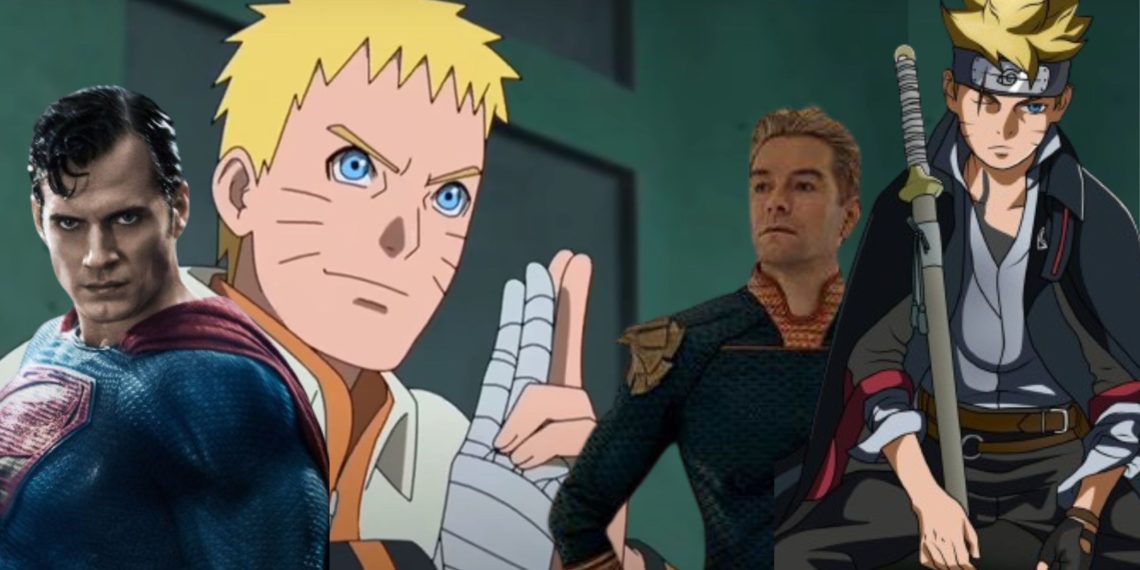Masashi Kishimoto’s latest illustration featuring Naruto and Boruto side by side has set the internet ablaze with excitement and humor.
This new artwork, a visual treat for fans of the series, has not only attracted the audiences with its artistry but also sparked a lively debate among fans.
In true fan culture fashion, the illustration has led to some amusing and thought-provoking comparisons with iconic characters from other franchises specifically, Superman from DC Comics and Homelander from “The Boys”.
This cross-universe comparison has ignited a whirlwind of reactions, showcasing the dynamic interplay between different fandoms and the ways in which fans engage with their favorite characters.
llustration That Set Off a Storm
Kishimoto’s recent illustration of Naruto and Boruto, rendered with his signature style, has drawn significant attention from the anime and manga community.
#BorutoTwoBlueVortex
One is a legendary hero and the other one is an international terrorist😭 pic.twitter.com/OHElVj0jPf— Scorch (@Scorch_Shot) August 14, 2024
The image shows the two characters positioned side by side, a visual that instantly evokes a sense of legacy and continuity between the two generations.
Naruto Uzumaki, the beloved hero and Seventh Hokage, stands alongside his son, Boruto Uzumaki, who has recently been thrust into a darker, more complex narrative.
This juxtaposition of father and son in a single frame highlights the contrast between their roles and the evolving storylines in the series.
However, it’s not just the artwork itself that has fans talking. The comparison of Naruto and Boruto to Superman and Homelander, respectively, has become a focal point of discussion.
This comparison is both humorous and insightful, drawing on the characters’ traits and story arcs to explore how they align with or differ from these iconic figures from Western pop culture.
Comparing Naruto and Superman: A Hero’s Legacy
The comparison between Naruto Uzumaki and Superman is perhaps the most straightforward and fitting.
Naruto, who started his journey as an underdog with little recognition, has grown into a revered hero and the leader of his village.
His journey from a lonely child to the respected Seventh Hokage mirrors Superman’s evolution from a humble farm boy to the symbol of truth, justice, and the American way.
Naruto’s character embodies the virtues of perseverance, bravery, and an unyielding commitment to protecting his home and loved ones.
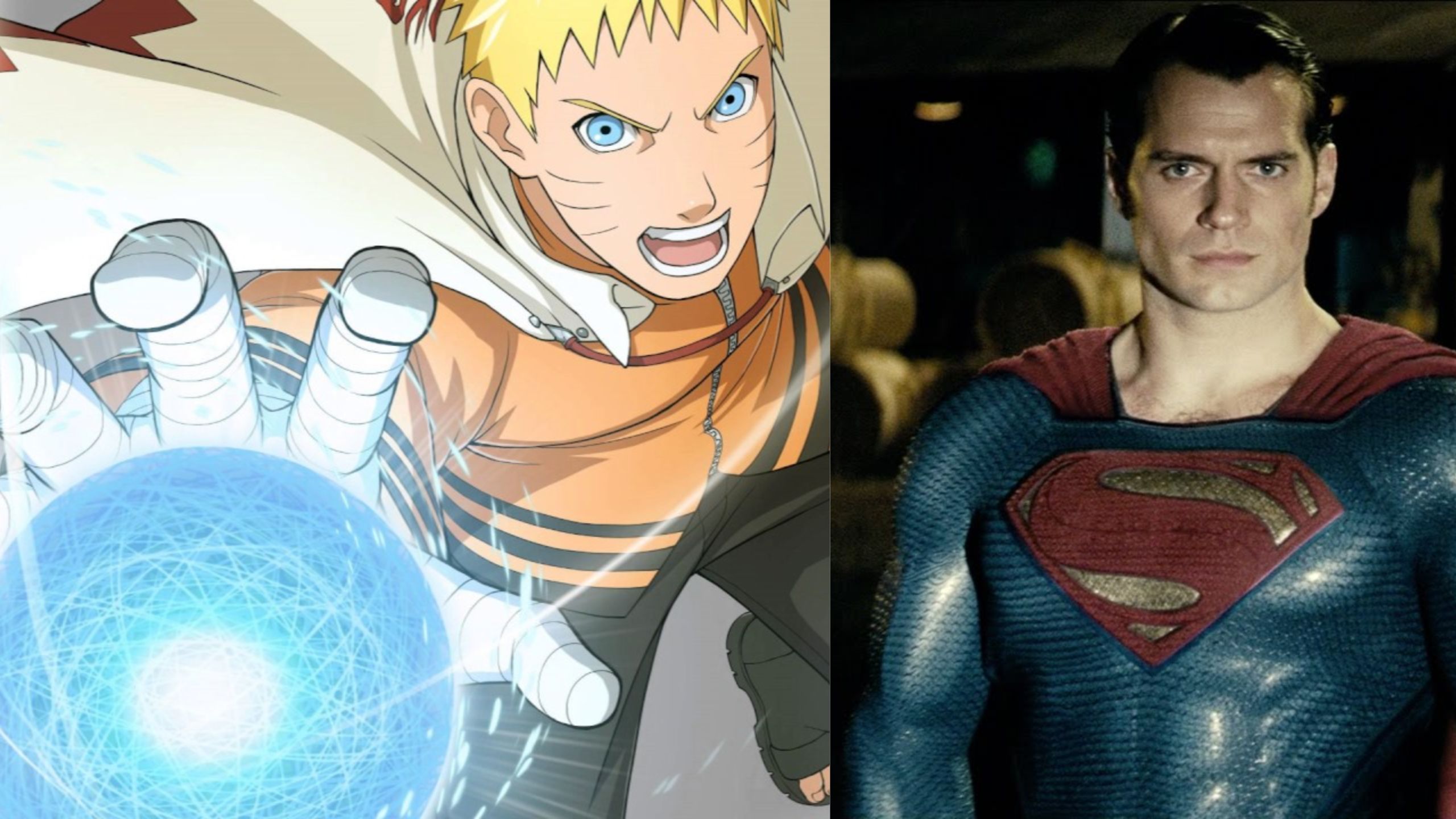
These qualities are reminiscent of Superman’s own moral compass and dedication to safeguarding humanity.
Both characters are symbols of hope and strength within their respective narratives, standing as beacons of light in the face of adversity.
In Kishimoto’s illustration, Naruto’s presence alongside Boruto underscores his role as a mentor and protector.
As the Seventh Hokage, Naruto represents the culmination of a hero’s journey—a journey marked by struggle, sacrifice, and ultimate triumph.
Superman, similarly, is portrayed as the ideal hero, embodying the highest ideals of heroism and leadership.
The visual alignment of Naruto with Superman highlights the thematic connections between their stories, celebrating the legacy of heroism that Naruto has inherited and continues to uphold.
Boruto and Homelander: A Controversial Comparison
The comparison between Boruto Uzumaki and Homelander from “The Boys” is more nuanced and controversial.
Homelander, portrayed as a charismatic yet morally ambiguous figure, is one of the central antagonists in “The Boys”.
Us Boruto fans the only anime fandom that want the terrorist to succeed at the end of the story pic.twitter.com/yCVKC1RewA
— Scorch (@Scorch_Shot) August 14, 2024
His character, while possessing immense power and a veneer of heroism, is ultimately driven by personal insecurities and a willingness to commit heinous acts to maintain control and dominance.
Boruto’s current narrative arc in the manga “Two Blue Vortex” has placed him in a complex and dark situation.
Recent chapters depict Boruto as a fugitive, accused of heinous crimes such as the murder of his father, Naruto, and his mother, Hinata Hyuga.
This dramatic shift in Boruto’s story has cast him in a negative light, creating a perception that he is a villain or an outcast.
This situation echoes, albeit in a more exaggerated form, some of the elements of Homelander’s character, particularly the themes of betrayal and moral ambiguity.
While Boruto’s actions are influenced by external manipulations, notably Eida’s Omnipotence, the comparison with Homelander underscores the dramatic shift in his character’s portrayal.
Both characters are embroiled in narratives where their actions are seen as betrayals, leading to their vilification.
This comparison, though exaggerated, highlights the tension and complexity in Boruto’s story, drawing a parallel to Homelander’s own controversial and morally ambiguous actions.
Fans’ Reactions: Defending and Debating
The reactions to this comparison have been varied, reflecting the passionate engagement of the fan community.
On one hand, some fans see the comparison as a satirical and humorous take on the current state of Boruto’s character.
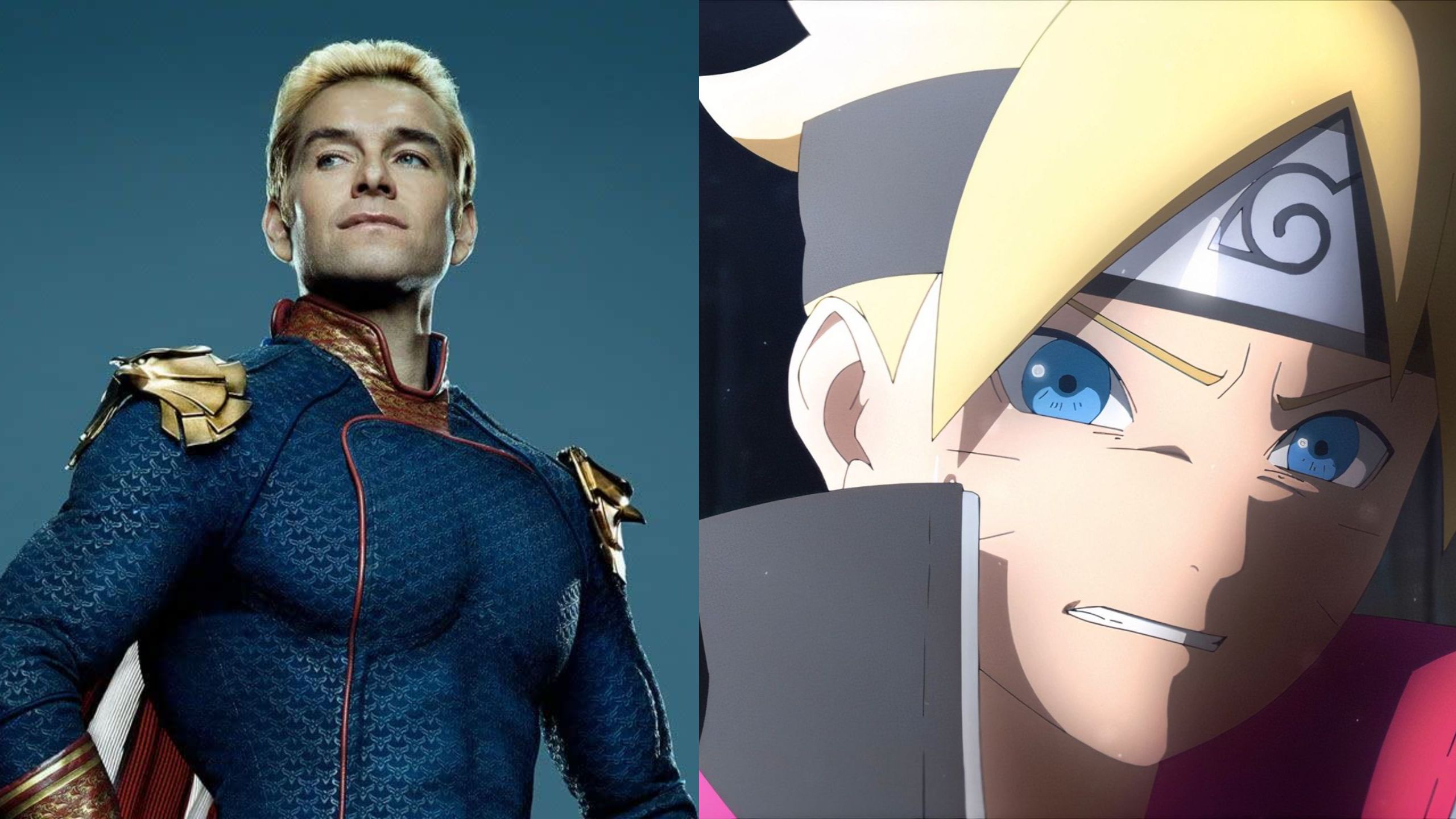
On the other hand, there are those who feel that the comparison is unfair and misrepresents the true nature of Boruto’s struggles and motivations.
One fan expressed their frustration with the comparison by stating,
“Don’t you dare compare Boruto to that insecure psycho…”
This comment reflects a sentiment among fans who believe that Boruto’s situation is more complex and nuanced than the comparison with Homelander suggests.
They argue that Boruto’s actions, while misguided, are driven by external factors rather than an intrinsic malevolence.
Another fan questioned the basis of the comparison, saying,
“Name one thing Boruto has done to deserve that comparison.”
This comment highlights the discrepancy between Boruto’s actual actions and the exaggerated portrayal of Homelander’s character.
Fans who make this argument often emphasize the distinction between Boruto’s role as a victim of circumstances and Homelander’s role as a conscious antagonist.
In contrast, some fans embrace the comparison as a way to engage with the current narrative in a creative and humorous manner.
One fan noted,
“Killed Naruto and Hinata in cold blood, made their children Kawaki and Himawari orphans.”
This comment, while dramatic, reflects the intense emotions surrounding Boruto’s current storyline and the way it has polarized fan opinions.
Amidst the debate, another netizen came to Boruto’s defense, asserting, “THOSE ARE FRAUDULENT CLAIMS. BORUTO IS INNOCENT.”
This passionate defense underscores the belief among some fans that Boruto is being unfairly judged based on misinformation or the manipulations of other characters.
“The Broader Implications: Themes of Heroism and Morality”
The comparisons between Naruto and Superman, as well as Boruto and Homelander, offer a broader commentary on themes of heroism and morality.
Both Naruto and Superman represent ideals of heroism and leadership, standing as symbols of hope and justice.
Their narratives are rooted in a clear moral framework, with their actions guided by a strong sense of duty and responsibility.
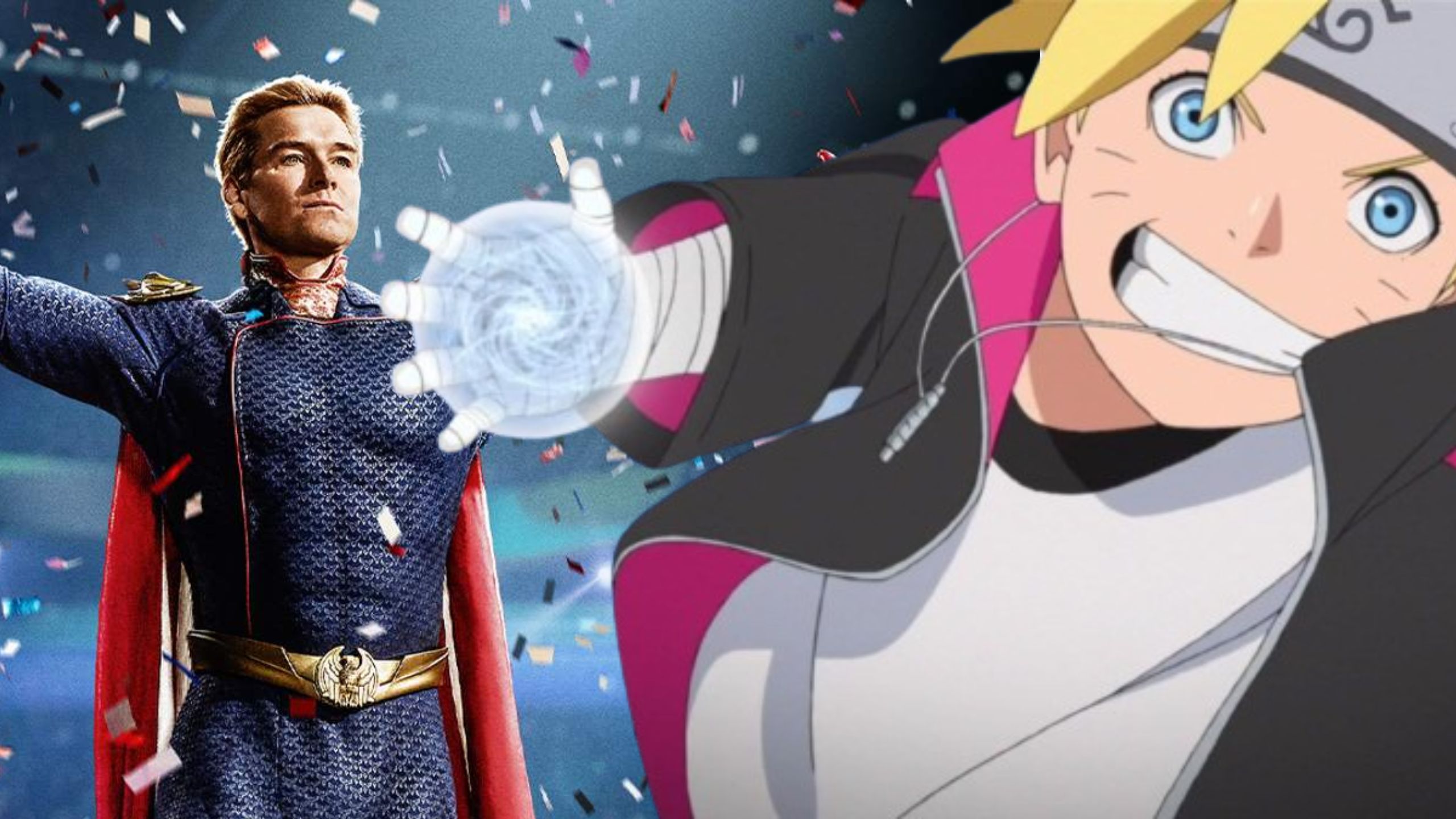
In contrast, the comparisons involving Boruto and Homelander explore themes of moral ambiguity and betrayal.
Homelander’s character, with his complex motivations and controversial actions, provides a stark contrast to the more straightforward heroism of Superman.
Boruto’s current arc, marked by accusations and betrayal, adds a layer of complexity to his character, challenging traditional notions of heroism and villainy.
These comparisons also highlight the ways in which different narratives address similar themes.
While Naruto and Superman embody the ideals of heroism, Boruto and Homelander represent the complexities and moral dilemmas faced by characters in darker, more intricate storylines.
This juxtaposition underscores the Elaborate motifs of storytelling in both anime and Western comics, showcasing how different creators tackle similar themes through various character arcs and narratives.
Social Media Buzz and Fan Engagement
The buzz on social media platforms, particularly X, has been substantial, with fans engaging in animated discussions about the comparisons.
The debate has brought attention to the intricacies of the characters’ storylines and the ways in which fans interpret their actions and motivations.
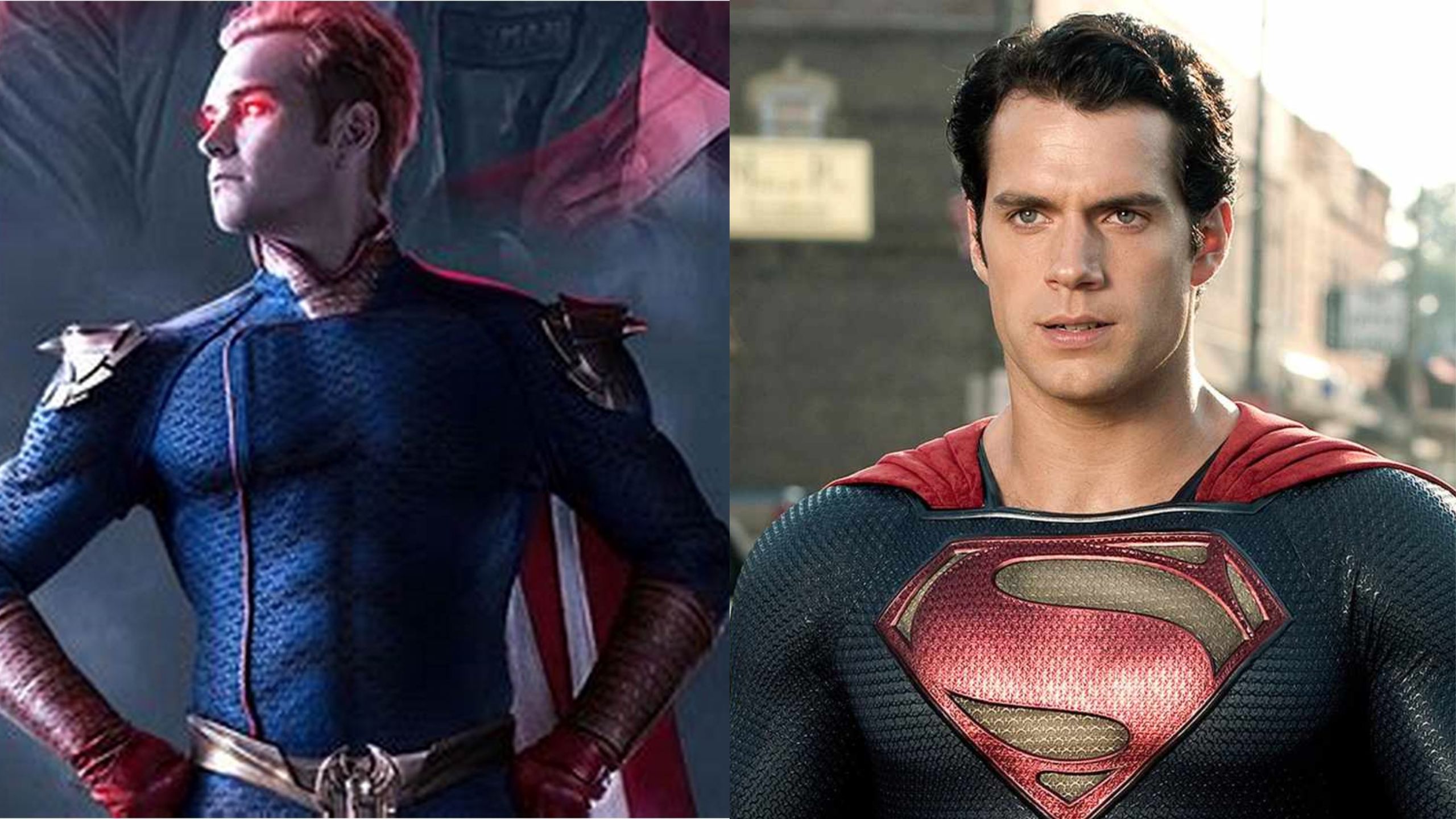
This engagement highlights the dynamic relationship between creators and their audiences, as fans actively contribute to the discourse surrounding their favorite characters.
The comparisons between Naruto, Boruto, Superman, and Homelander also reflect the broader cultural exchange between anime and Western comics.
Fans from different backgrounds and media traditions are finding common ground through these comparisons, enriching the conversation with various perspectives and interpretations.
This cross-cultural dialogue not only enhances the fan experience but also deepens the appreciation for the storytelling techniques used in both mediums.
Heroism: Naruto, Boruto, and Beyond
Masashi Kishimoto’s latest illustration of Naruto and Boruto has sparked a fascinating and entertaining debate among fans.
The comparisons to Superman and Homelander, while humorous and provocative, offer a deeper exploration of the characters’ roles and narratives.
Whether viewed as a playful satire or a serious commentary, these comparisons highlight the enduring impact of Kishimoto’s work and the vibrant engagement of the fan community.
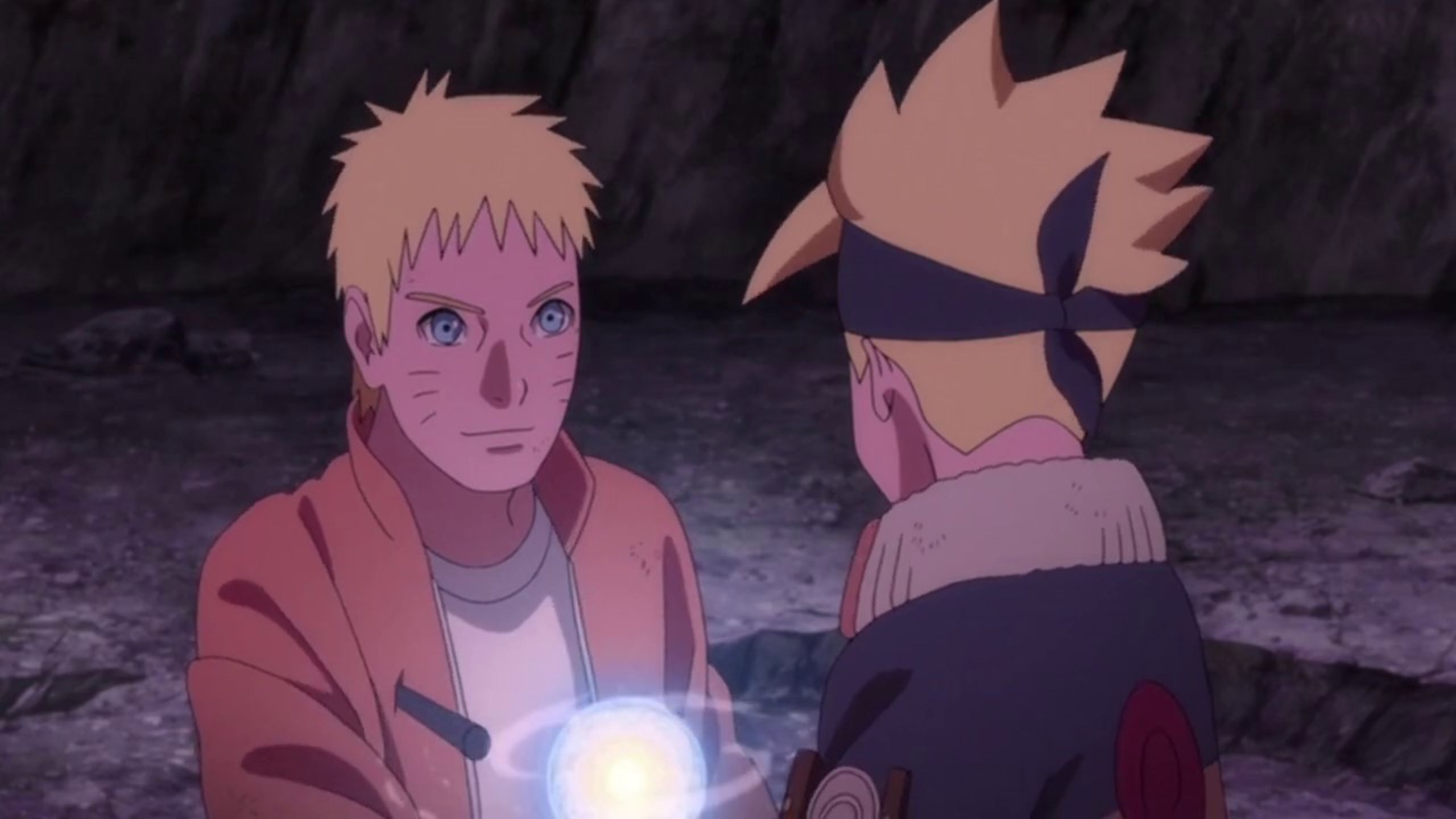
As the discussions continue, it’s clear that the comparison has not only captured the imagination of fans but also provided a platform for exploring themes of heroism, morality, and character complexity.
The dynamic interactions between Naruto, Boruto, Superman, and Homelander reflect the rich storytelling traditions of both anime and Western comics, showcasing various ways in which characters can be understood and appreciated.
In the end, Kishimoto’s illustration serves as a reminder of the power of art to inspire dialogue and creativity, bridging the gap between different storytelling traditions and inviting fans to engage in meaningful and entertaining discussions.

